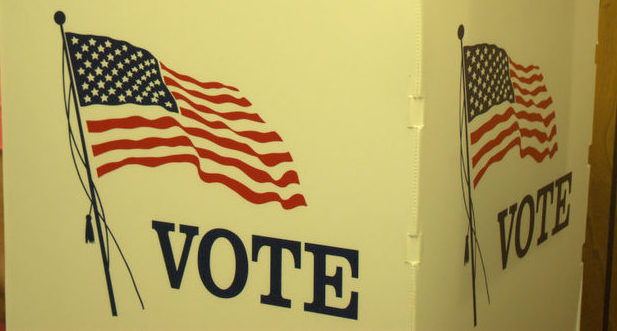House Democrats Plan to Restore Voting Rights, Ethics Laws
It is an ambitious plan for a divided government. bjmccray / Flickr Creative Commons
bjmccray / Flickr Creative Commons
In 2013, Supreme Court Chief Justice John Roberts wrote in Shelby County v. Holder that Southern states with the most prevalent history of voter suppression no longer had to clear changes to voting rights laws with the federal government because “our country has changed.”
Today’s suspiciously missing and malfunctioning voting machines in Georgia, voter ID laws in Texas and North Carolina, and the thousands of voters purged from the rolls in Florida, however, suggest that perhaps the country has not changed. And now that Democrats have won a majority of House seats, their first goal is to restore rights that were gutted five years ago.
NPR reported Monday that House Democratic leaders say their first priorities in January are to “[r]emove obstacles to voting, close loopholes in government ethics law and reduce the influence of political money.”
These goals, combined in their first bill, H.R. 1, are “Three very basic things that I think the public wants to see,” Maryland Rep. John Sarbanes told NPR.
H.R. 1 would establish automatic voter registration, and restore the parts of the Voting Rights Act that Shelby County v. Holder eliminated five years ago. It would strive to overturn the Citizens United decision, which lifted caps on corporate spending for elections and took away redistricting power from state governments in favor of independent commissions.
The bill would also close a loophole in government ethics law that allows presidents to sidestep bans against conflicts of interest, and require that presidential candidates make their tax returns public.
The latter two actions have been previously accepted as “norms” of American government and elections, but were not previously codified into law.
Sarbanes admitted to NPR that a vote on this bill would be a small first step, given that Republicans, who hold a majority in the Senate, are unlikely to pass it, and that President Trump—the target of the tax return and ethics loophole closure—is unlikely to sign it. Sarbanes is looking toward establishing goals for 2020, saying, “Give us the gavel in the Senate in 2020 and we’ll pass it in the Senate. … Give us a pen in the Oval Office and we’ll sign those kinds of reforms into law.”
Unsurprisingly, Senate Majority Leader Mitch McConnell of Kentucky brushed off this strategy, telling reporters that this approach amounts to “presidential harassment,” turning the bill into a referendum on the president.
Your support matters…Independent journalism is under threat and overshadowed by heavily funded mainstream media.
You can help level the playing field. Become a member.
Your tax-deductible contribution keeps us digging beneath the headlines to give you thought-provoking, investigative reporting and analysis that unearths what's really happening- without compromise.
Give today to support our courageous, independent journalists.






You need to be a supporter to comment.
There are currently no responses to this article.
Be the first to respond.